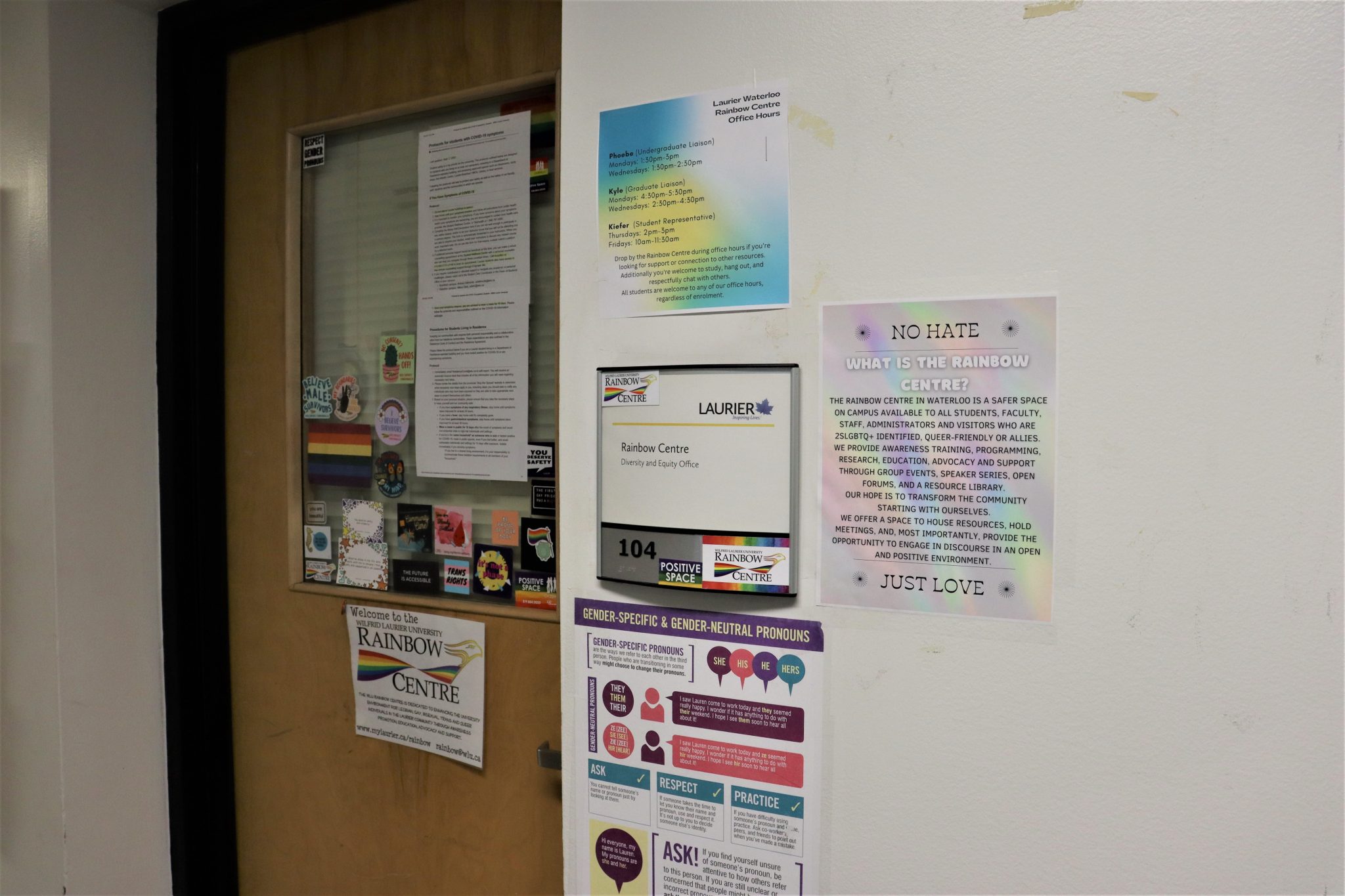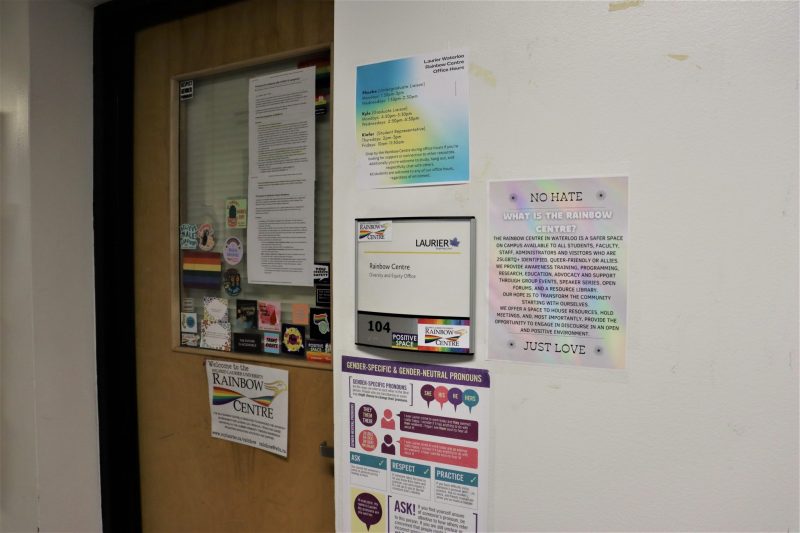Laurier study finds discrimination increases mental and academic struggles for 2SLGBTQ+ students


A new study at Wilfrid Laurier University has found that discrimination against the 2SLGBTQ+ community likely leads to mental health and academic struggles for university students who identify as 2SLGBTQ+.
Thriving On Campus is the first study of its kind to interview and survey nearly 4,000 students from universities across Ontario, gathering the experiences, perceptions, wellbeing and academic success of students part of the 2SLGBTQ+ community.
The study also highlights the experiences of students who identify as 2SLGBTQ+ that are Disabled, Indigenous and BIPOC who are minority groups within the 2SLGBTQ+ community.
“This study is important because we need to have the information in order to know where we need to be putting our energies in terms of change,” Michael Woodford, a professor at the Faculty of Social Work said.
Woodford led the Thriving On Campus study and specializes in research about inclusion and exclusion of queer and trans individuals and how it affects their mental health.
“Part of the work that my team and I do around discrimination looks at microaggressions, which are everyday forms of discrimination that are subtle and are often unintentional, but it’s really important that we understand what their consequences are,” he said.
The report presents a vital source of information of the victimization of 2SLGBTQ+ identifying individuals and the microaggressions they experience on campus, including using incorrect pronouns, forms of documentation asking about gender and sex, receiving information about sexual health that is limited to cisgender bodies, non-accessible bathrooms, implying sex at birth is one’s real gender and negative messages or posts on social media.
“We have examples from students of where they’ve asked for particular pronouns to be used, and faculty have refused to do that, and then these students ask themselves, ‘is this really a space where I belong if my identities are not being respected?’” Woodford said.
Microaggressions are not the only form of discrimination 2SLGBTQ+ individuals face on campus, as the study reveals students reported being followed in a threatening manner, sexual harassment and verbal threats of bullying.
According to the report, nearly 12 per cent of participants in the study have been followed in a threatening manner, the highest rates being among students who are nonbinary at 19 percent and cisgender women at 17.1 percent.
For reported sexual harassment, cisgender women made up 22.7 percent of incidents, followed by nonbinary individuals at 17.7 per cent, and trans women at16.4 percent.
Additionally, the statistics for verbal threats show highest rates among trans men (27.8 percent), trans women (25 percent) and nonbinary individuals (23.4 percent).
These findings of discrimination and assault towards 2SLGBTQ+ have correlated to a decrease in positive mental health and difficulties with academic performance.
We have examples from students of where they’ve asked for particular pronouns to be used, and faculty have refused to do that, and then these students ask themselves, ‘is this really a space where I belong if my identities are not being respected?’
Michael Woodford, professor at the Faculty of Social Work
“If you think about the stress that goes into being an outsider on a campus––the feeling like you don’t belong, it takes a toll on people’s mental health and how you feel about yourself,” Woodford said.
When students do not feel safe to be themselves in an academic environment, they are likely to stop attending class.
“We found that across all forms of exclusion or discrimination that students who report higher levels of microaggressions tend to report lower levels of positive mental health and academic disengagement. If you don’t feel safe in class, you’re probably not going to those classes,” he said.
In some cases, high rates of victimization will lead students to consider leaving the university.
“The stressors students are under because the climate is hostile, unfriendly, and violent has consequences where students feel they need to leave the school to start all over again somewhere else,” Woodford said.
Although these accounts of students’ experiences with microaggressions are disheartening, this information is crucial towards creating an environment that is safe and promoting equality on campus.
“Universities have a responsibility to change the environment, and that’s why the campus climate programming that we do is really important, so we can ensure that we are really trying to work on eliminating microaggressions on a campus,” he said.
In recent years at WLU, the university has taken steps towards making campus an inclusive environment for 2SLGBTQ+ by introducing gender inclusive housing, accessible bathrooms, human resources partnering with the sexual violence and prevention support office, and the Rainbow Center. However, there is room for improvement at WLU and universities across Ontario.
“We are really committed to trying to make change, and have been busy with another project that’s a follow up to the Thriving On Campus study where we’re mobilizing the findings, and helping campuses plan ways to make improvements,” Woodford said.
Woodford and his team continue to host webinars and virtual events to help participants learn, reflect and take action towards establishing a safer and more accepting campus environment.
You can find webinar recordings and information on the Thriving On Campus website: https://lgbtq2sthrivingoncampus.ca/en_ca/

